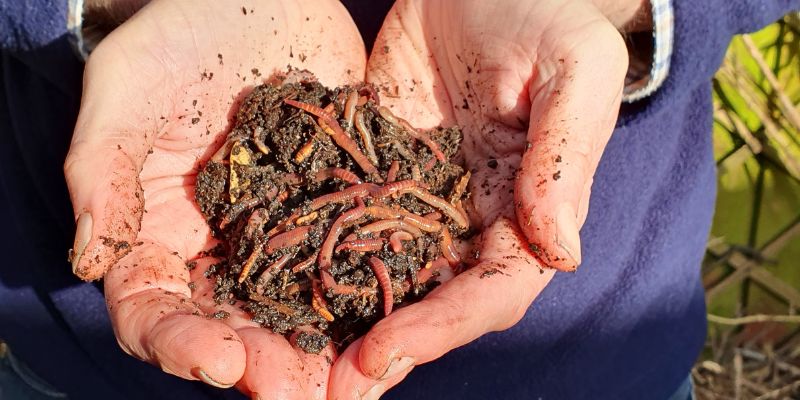
Researchers are to investigate whether the humble earthworm is being threatened by climate change and flooding here in the UK.
Scientists from the University of Leeds, the University of York and the University of Liverpool will spend the next two years blending field sampling, laboratory experiments and modelling techniques to assess the impact on the numbers of earthworms and on their general health.
And, for the first time, they will link this new knowledge to predicted increases in the intensity, frequency and duration of flooding.
This research is all-important for understanding the complexity of soil health on a changing planet.
The study will also explore how the changes to earthworm habitats may affect their communities, which in turn could have an impact on soil health, biodiversity, and even the growth of food on farms.
The ambitious project, which is being funded by the Leverhulme Trust, is being announced ahead of this year’s World Earthworm Day, on October 21st.
Dr Megan Klaar, an Associate Professor in Leeds’ School of Geography, will lead on the creation of earthworm flood risk maps. These will show earthworms’ vulnerability to increases in the extent, frequency, and duration of flooding due to climate change.
“Currently there is very little understanding or research linking the projected changes in farmland flooding with earthworm survival,” she explained.
“Earthworm survival is vital for maintaining soil health and structure so it is really important that we carry out hydrological mapping to predict where flooding may increase in extent, duration and magnitude, which may put some earthworm species at risk.”
Earthworms are considered vital creatures that help keep soil healthy by eating and recycling organic matter. They also create networks of tunnels that promote soil drainage and aeration.
They breathe oxygen just like humans, but they don’t have lungs and actually breathe across their skin. The creatures can survive in water provided that the water contains enough oxygen, but within hours flooded soils can become oxygen deficient and earthworms drown.
Professor Mark Hodson, a soil scientist from the University of York, said: “Earthworms won’t just wait in the soil as the flood waters rise.
“They are sensitive to soil moisture contents and as soils become wetter, they could try to move away to drier soil. So, we’re also going to investigate how wet a soil must get before earthworms start to move to more favourable conditions, and whether they can move fast enough to outpace the flood waters.
“If the worst happens and the earthworms drown, their cocoons (earthworm eggs) will still be in the soil. Once the flood waters recede, the cocoons could hatch, replenishing the earthworm population.”
Another aspect of the study will be to determine whether reductions in oxygen concentrations in the soil during flooding damages the earthworm cocoons and reduces their hatching rate.
Dr Klaar added: “This research is all-important for understanding the complexity of soil health on a changing planet. We hope this study will help us understand more about how nature is interconnected to climate change and flooding - contributing to the development of more resilient communities. Celebrating World Earthworm Day is an ideal way to get started on this.”
Further information
Image courtesy of Dr Michael Berenbrink, University of Liverpool
For media enquiries, please contact Kersti Mitchell via k.mitchell@leeds.ac.uk